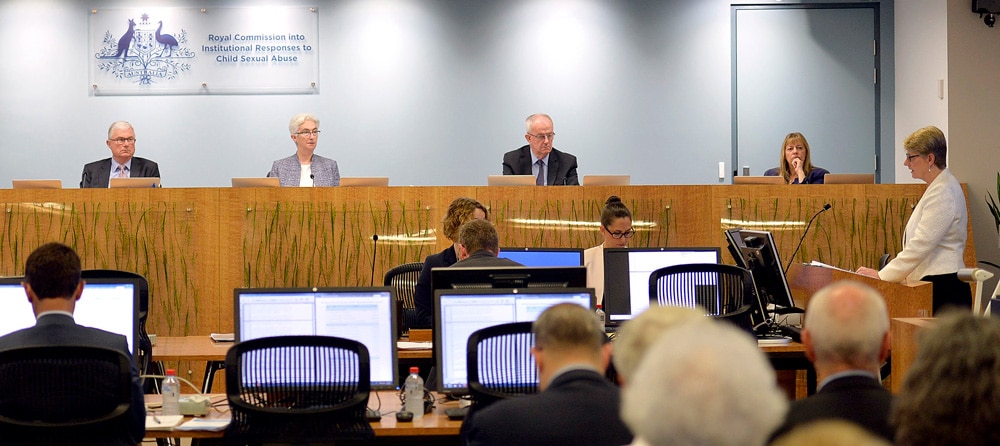 In light of the first sessions of the Royal Commission into Institutional Responses to Child Sexual Abuse this week and the searing, shocking statistics detailing what is known about sexual abuse by clergy, religious and Church workers in this country since the 1950s, a wonderful passage from the 1948 Gifford lectures delivered by the historian (and Catholic) Christopher Dawson comes to mind.
In light of the first sessions of the Royal Commission into Institutional Responses to Child Sexual Abuse this week and the searing, shocking statistics detailing what is known about sexual abuse by clergy, religious and Church workers in this country since the 1950s, a wonderful passage from the 1948 Gifford lectures delivered by the historian (and Catholic) Christopher Dawson comes to mind.
Dawson, one of the greatest historians of the Church and its relationship to culture, quotes the Catholic bishops of the province of Rheims gathered at Trosle in the Year 909. The declaration of the bishops’ Council is fascinating, not so much for how they decry the state of their society, which is dire (and which, in any case, we might expect that they would do), but for how they decry the state of the Church.
What is wonderful is their brutal honesty describing the corruption which had, by then, clearly entered into and come to dominate much of the contemporary Church, especially the monasteries which, in the tenth century, were effectively the centres of Church life and outreach.
“Men,” the bishops wrote, “devour one another like the fishes in the sea. In the case of the monasteries some have been destroyed by the heathen, others have been deprived of their property and reduced to nothing. In those that remain there is no longer any observance of the rule. They no longer have legitimate superiors, owing to the abuse of submitting to secular domination.”
“We see in the monasteries,” they continued, “lay abbots with their wives and their children, their soldiers and their dogs.”
But the prelates did not spare themselves either: “God’s flock perishes through our charge. It has come about by our negligence, our ignorance and that of our brethren, that there is in the Church an innumerable multitude of both sexes and every condition who reach old age without instruction, so that they are ignorant even of the words of the Creed and the Lord’s Prayer.”
Despite the dire and pressing situation, this willingness to squarely face up to the true reasons for the corruption of the Church in their own time makes the bishops of Rheims an outstanding example to the rest of history, including to us in Australia today.
Dawson knew this well: “When the leaders of any society realise the gravity of the situation and admit their own responsibility like this the situation is never desperate,” he noted.
These coming weeks, as the Royal Commission wraps up its investigations into the Church and abuse in this country, are – and will be – the most painful experience Catholics have ever faced in the history of Australia. For many, the temptation to cynicism will be extreme.
Yet it is worth remembering that while sometimes in life new information is painful to receive, it is precisely the painful truth that enables us to chart our way forward to something better. And it is worth remembering that for many people in Australia the Royal Commission is not only a vindication of sorts for the evil they suffered at the hands of those who occupied power and represented official positions within the Church but, we hope and we pray, the beginning of healing as well.
More than ever before we are called to be a people of prayer, but especially – like the bishops of Rheims – a people of humility.
